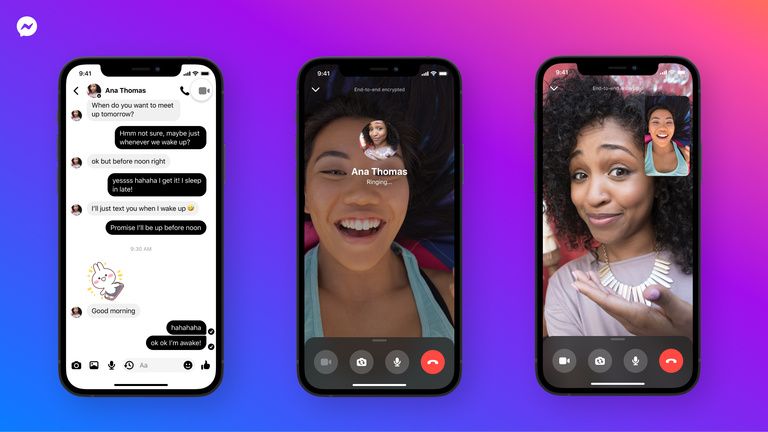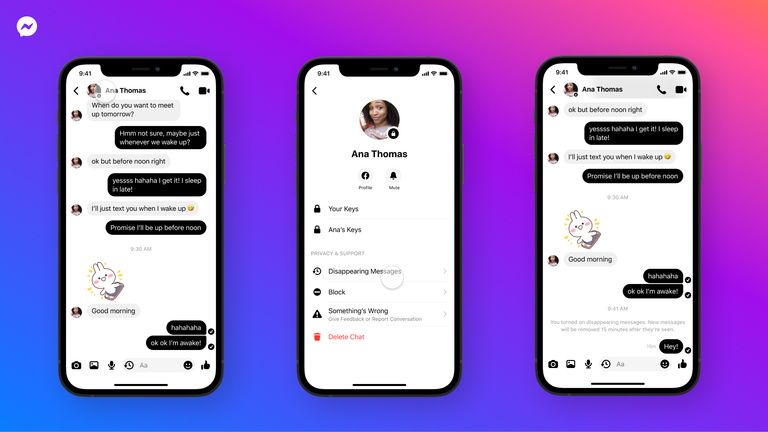End-to-end encryption means that when a piece of data leaves your phone, at no point is it decrypted until it reaches its destination. That means if you send a message to a friend via an end-to-end encrypted service, the server that handles your message can't even see what you've written. Facebook Messenger first rolled it out by switching to "secret conversation" mode, though that also disables a lot of features from working. Facebook Messenger will now let you turn on end-to-end encryption for voice and video calls.
The company announced the addition in a blog post, also stating that there are over 150 million video calls on Facebook Messenger a day. Facebook first rolled out end-to-end encryption in its Messenger app in 2016. Facebook's WhatsApp already supports end-to-end encrypted phone calls, and so do a ton of other calling applications too. In the same blog post, Facebook also says that its disappearing messages feature is now being added to Messenger too. Messages can be set to disappear at a certain time, ranging from 5 seconds all the way up to 24 hours.
The company also says that end-to-end encrypted group chats and calls in Messenger will soon be rolled out. Previously, secret conversations could only take place with individual users, but Facebook says that will be changing in the "coming weeks". You'll also be able to set up delivery controls so that you can decide who can reach your chats list, who goes to your requests folder, and who can't message you at all.
Finally, the company also says that it is kicking off a "limited test" with adults in certain countries to opt-in to end-to-end encrypted messages and calls for one-on-one conversations on Instagram. It's similar to how Facebook Messenger works in that you need to have an existing chat or be following each other in order to start an end-to-end encrypted DM, and you'll be able to block people and report people as you have come to expect. The company has previously said that conversations will be encrypted by default until sometime in 2022 at the earliest.


